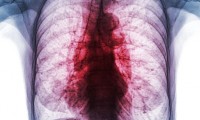-
Lilly’s Mirikizumab Shows Long-Term Remission in Phase III Crohn’s Trial
- Source: drugdu
- 322
- October 14, 2023
-
Biogen Lays Off 113 Reata Employees Weeks After Completing $7B Acquisition
- Source: drugdu
- 419
- October 14, 2023
-
European Commission orders Illumina to divest Grail
- Source: drugdu
- 445
- October 14, 2023
-
Mount Sinai researchers receive NIH grant to compare new treatment options for sickle cell disease
- Source: drugdu
- 535
- October 14, 2023
-
What to Expect
- Source: drugdu
- 455
- October 14, 2023
-
Judge grants preliminary approval to Philips class action settlement
- Source: drugdu
- 404
- October 14, 2023
-
report
- Source: drugdu
- 435
- October 14, 2023
-
Incyte taps actor to help tell the stories of eczema patients, with focus on teen’s Opzelura experience
- Source: drugdu
- 335
- October 14, 2023
-
After FDA snub, Lilly’s mirikizumab looks to regain momentum with phase 3 Crohn’s win
- Source: drugdu
- 387
- October 13, 2023
-
Haemonetics inks $253M OpSens buyout, adding cardiology guidewires to portfolio
- Source: drugdu
- 375
- October 13, 2023
your submission has already been received.
OK
Subscribe
Please enter a valid Email address!
Submit
The most relevant industry news & insight will be sent to you every two weeks.
















